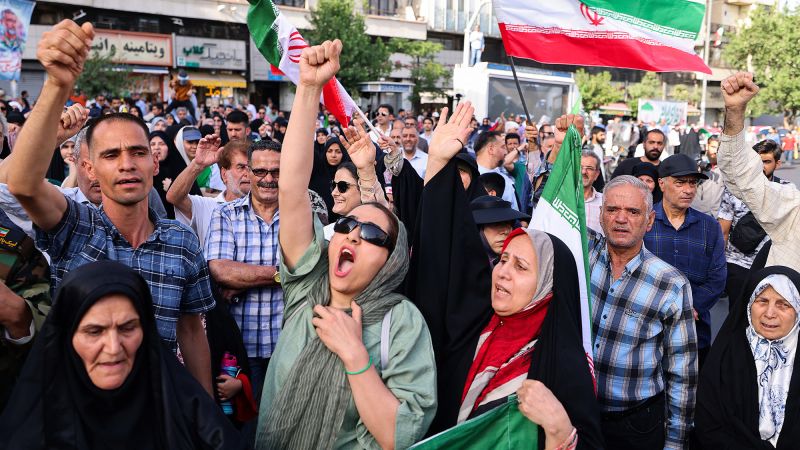Looking at the skyline as he drove through the streets of Iran’s capital Tehran, Indian student Sheikh Mohammad Azhan wasn’t admiring the view — instead, he was scanning for missiles.
“We would watch the sky, hoping no projectile would come our way,” the 22-year-old medical student told CNN. “We could see smoke all around the roads. We could see the city getting attacked.”
Sheikh, who is in his third year at Shahid Beheshti University of Medical Sciences in Tehran, is among more than 1,700 Indian nationals evacuated from Iran since conflict erupted between the Islamic Republic and Israel. Iran has long been a popular university destination for Muslim Indian students — drawn to the country by both affordability, and shared religious ties.
With Iran’s airspace closed, they embarked on a precarious journey by road and air, facing long waits and uncertainty as the Indian government worked to bring them home. Sheikh described feeling overcome with fear.
“We had very disturbing thoughts in our minds — what will happen to our degree? What will happen to our future? And most importantly, what will happen to our lives?” he said.
Sheikh’s journey out of Iran, which began last Monday, took about six days. He first boarded a bus arranged by the Indian embassy from the Iranian capital to the city of Qom, about 150 kilometers south. It’s a trip that normally takes about two hours, but took Sheikh nearly four.
Two days after arriving in Qom, students were asked to move again – this time nearly 1,000 kilometers east to the city of Mashhad, where they had planned to cross into Turkmenistan to continue their journey toward New Delhi. But uncertainty struck again.
“There was some kind of issue near the border, like visas. So we cannot go to Turkmenistan,” Sheikh said.
Two days later, they were told they would take a plane from Mashhad itself, on a “special flight” arranged by the Indian government. As they walked onto the plane, anxiety persisted as they were worried the plane could get attacked. “We were scared. What if they attack us too?” he said.
The flight from Mashhad to New Delhi took just over two hours. Students cheered and clapped as they landed in the Indian capital, video shared with CNN shows.
While out of the crosshairs, Sheikh – like many students evacuated - now faces uncertainty about his future as he still has two years of studying left and worries what could happen if the situation in Iran doesn’t stabilize.
“If I migrate from one country to another during my degree, it won’t be valid in India,” he said. “I’ll have to start from scratch. Three, four years of studying — and now we don’t even know what’s next.”
